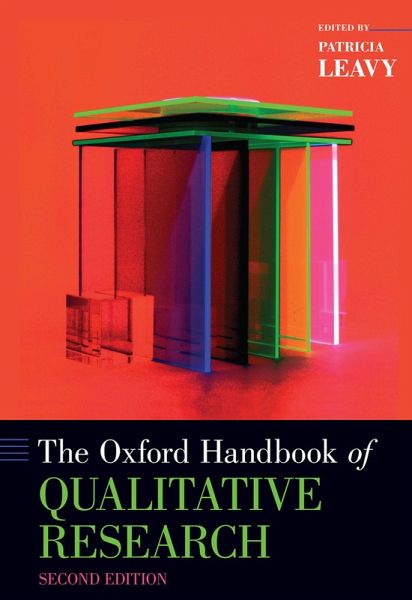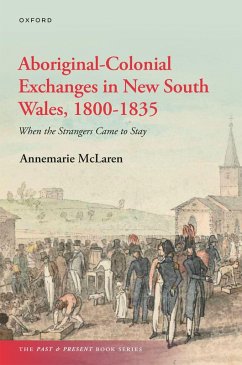
The Oxford Handbook of Qualitative Research (eBook, PDF)
Versandkostenfrei!
Sofort per Download lieferbar
77,95 €
inkl. MwSt.
Weitere Ausgaben:

PAYBACK Punkte
39 °P sammeln!
The Oxford Handbook of Qualitative Research, Second Edition presents a comprehensive, interdisciplinary overview of the field of qualitative research. Divided into eight parts, the forty chapters address key topics in the field such as approaches to qualitative research (philosophical perspectives), narrative inquiry, field research, and interview methods, text, arts-based, and internet methods, analysis and interpretation of findings, and representation and evaluation. The handbook is intended for students of all levels, faculty, and researchers across the disciplines, and the contributors re...
The Oxford Handbook of Qualitative Research, Second Edition presents a comprehensive, interdisciplinary overview of the field of qualitative research. Divided into eight parts, the forty chapters address key topics in the field such as approaches to qualitative research (philosophical perspectives), narrative inquiry, field research, and interview methods, text, arts-based, and internet methods, analysis and interpretation of findings, and representation and evaluation. The handbook is intended for students of all levels, faculty, and researchers across the disciplines, and the contributors represent some of the most influential and innovative researchers as well as emerging scholars. This handbook provides a broad introduction to the field of qualitative research to those with little to no background in the subject, while providing substantive contributions to the field that will be of interest to even the most experienced researchers. It serves as a user-friendly teaching tool suitable for a range of undergraduate or graduate courses, as well as individuals working on their thesis or other research projects. With a focus on methodological instruction, the incorporation of real-world examples and practical applications, and ample coverage of writing and representation, this volume offers everything readers need to undertake their own qualitative studies.
Dieser Download kann aus rechtlichen Gründen nur mit Rechnungsadresse in A, B, BG, CY, CZ, D, DK, EW, E, FIN, F, GR, HR, H, IRL, I, LT, L, LR, M, NL, PL, P, R, S, SLO, SK ausgeliefert werden.













